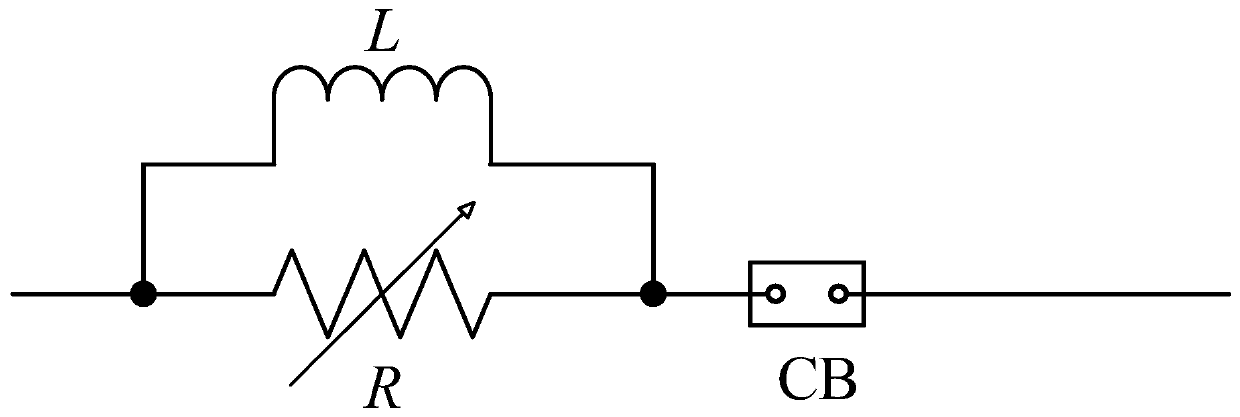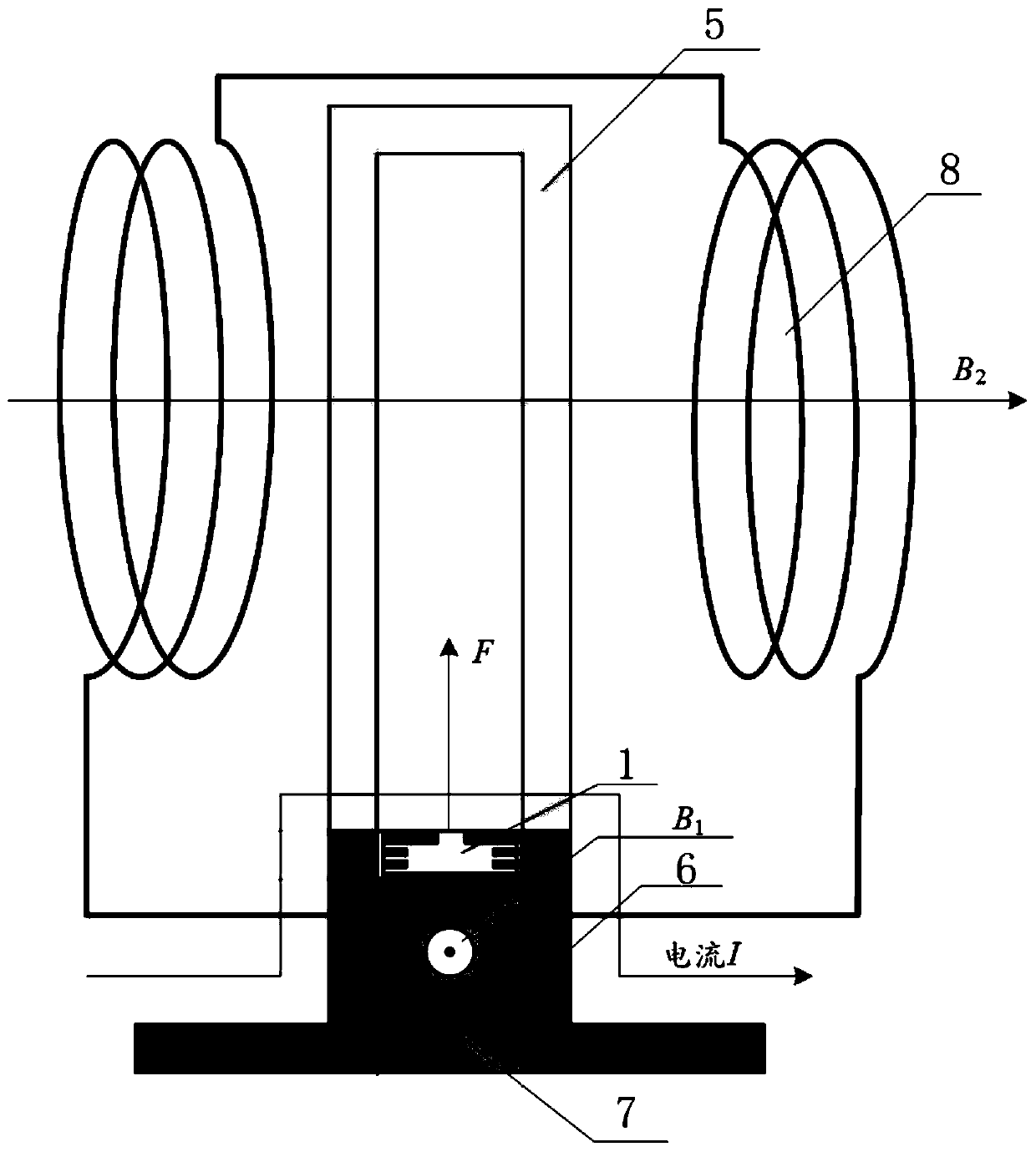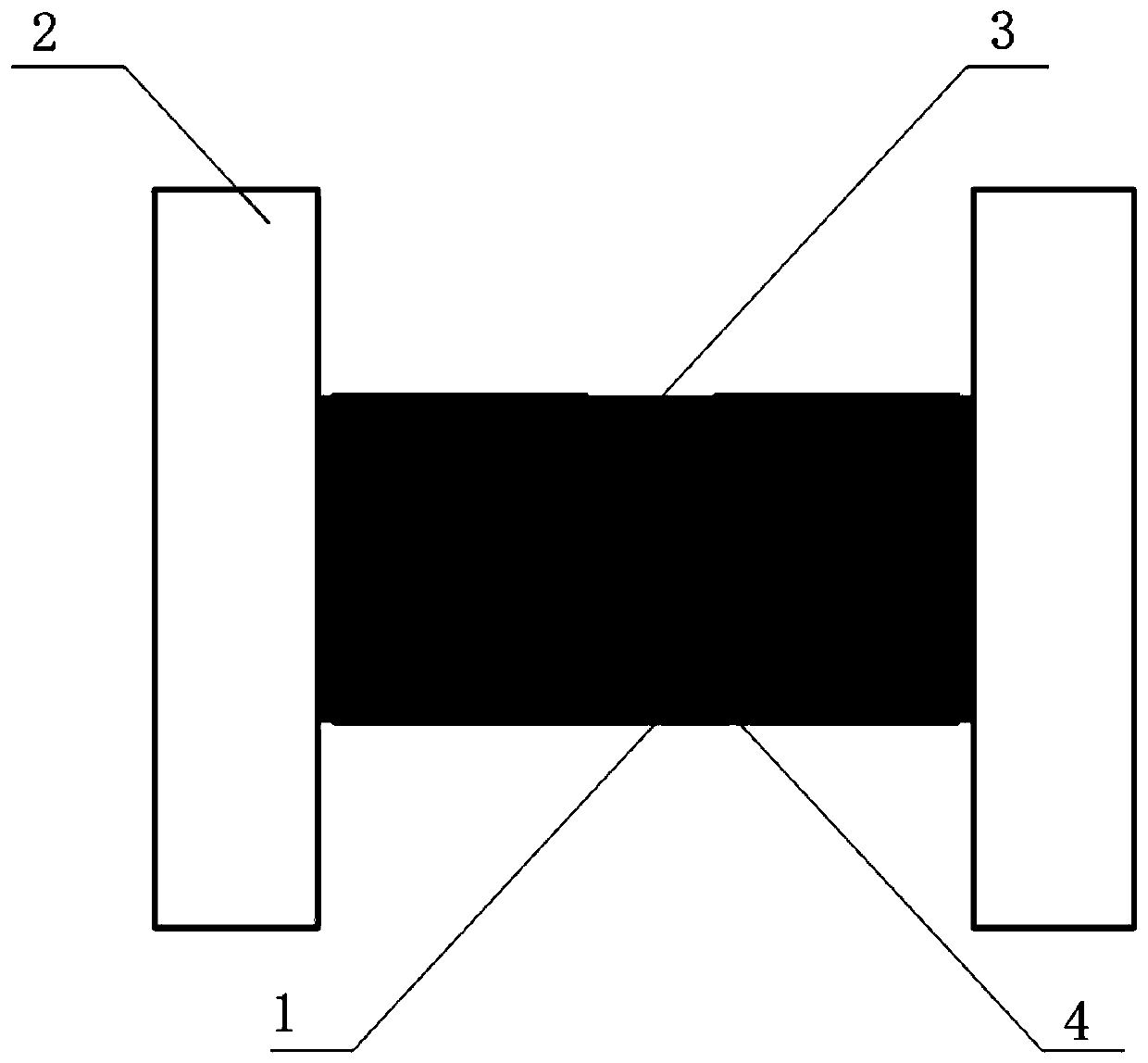Novel self-driven modular current limiting device
A technology for driving modules and current limiting devices, applied to power devices inside switches, emergency protection circuit devices for limiting overcurrent/overvoltage, circuit devices, etc., to facilitate modular design, meet economy and compatibility Effect
- Summary
- Abstract
- Description
- Claims
- Application Information
AI Technical Summary
Problems solved by technology
Method used
Image
Examples
Embodiment 1
[0044] A novel self-driven modular current-limiting device includes a high-voltage rheostat R, a reactor L8, and a circuit breaker CB. After the high-voltage rheostat R and the reactor L8 are connected in parallel, they are connected in series with the circuit breaker CB.
[0045] The operation mode of the new self-driven modular current limiting device is:
[0046] (3) During normal operation, the circuit breaker CB is closed, and the resistance value of the high-voltage rheostat R is the smallest, close to zero resistance, bearing the system current, and the loss of the current limiting device is very small;
[0047] (4) When a fault occurs, the resistance of the high-voltage rheostat increases rapidly, and the current is gradually transferred to the L8 branch of the reactor, thereby limiting the rising rate and peak value of the fault current. At the same time, the circuit breaker opens to break the fault current after the current limit.
[0048] The technical scheme of the...
Embodiment 2
[0069] Figure 4 It consists of 12 5kV / 20kA self-driven variable impedance modules in parallel with 2 series to form a self-driven DC FCL. If it is used in a DC 10kV / 120kA system, the rated voltage of each module is 5kV, and the volume of the metal slider is reduced by one-third First, while the short-circuit current is the same, the electromagnetic force remains unchanged, the speed of the slider can be greatly increased, and the insulation requirements of the module will also be reduced.
[0070] The characteristics of the self-driven variable impedance module proposed by the present invention are:
[0071] (1) The resistance value can change continuously from zero to a larger value;
[0072] (2) It can withstand large current and high voltage for a short time (its working condition is close to the closing resistance of high-voltage circuit breaker, so ZnO ceramic resistance can be selected);
[0073] (3) No need for detection and control devices, self-driven, quick respon...
PUM
 Login to View More
Login to View More Abstract
Description
Claims
Application Information
 Login to View More
Login to View More - R&D
- Intellectual Property
- Life Sciences
- Materials
- Tech Scout
- Unparalleled Data Quality
- Higher Quality Content
- 60% Fewer Hallucinations
Browse by: Latest US Patents, China's latest patents, Technical Efficacy Thesaurus, Application Domain, Technology Topic, Popular Technical Reports.
© 2025 PatSnap. All rights reserved.Legal|Privacy policy|Modern Slavery Act Transparency Statement|Sitemap|About US| Contact US: help@patsnap.com



